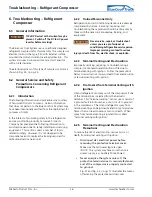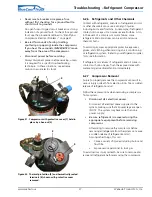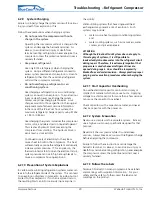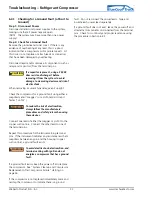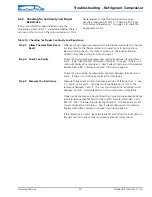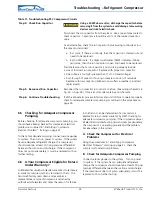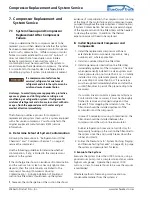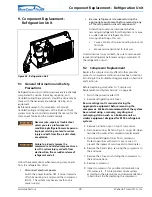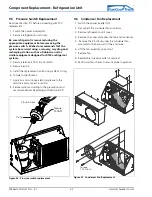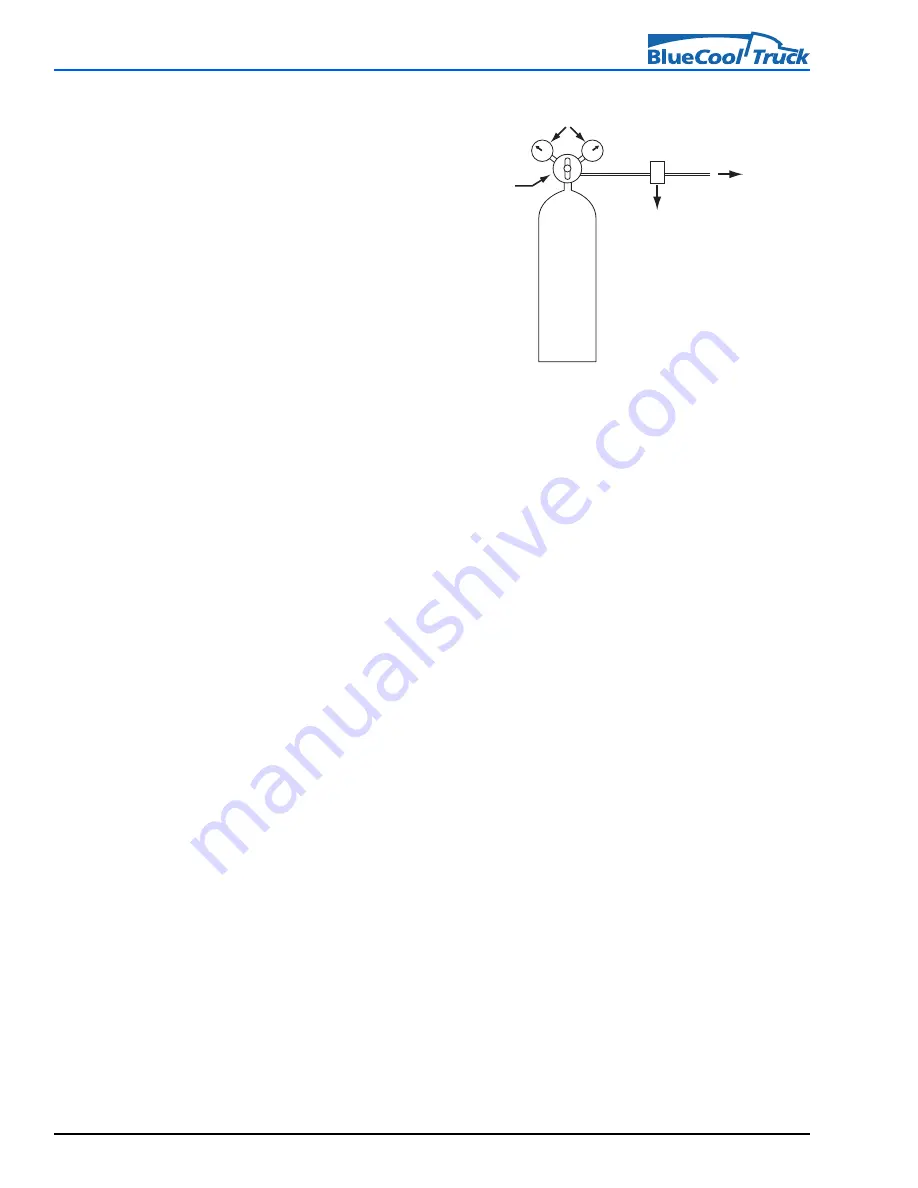
Troubleshooting – Refrigerant Compressor
Webasto Product N.A., Inc.
28
www.techwebasto.com
™
6.2.8
System Flushing, Purging, and Pressure
Testing for Leaks
Failure to properly flush, purge, or pressure test a system
for leaks can result in serious injury or death from
explosion, fire or contact with acid-saturated refrigerant
or oil mists.
Webasto recommends that the system be serviced
using a flush and purge station such as a Robinair
®
unit or similar equipment designed for R134a
refrigerant systems.
Follow these precautions when flushing/purging a system
or pressure testing a system for leaks:
•
Use flushing products according to the
manufacturer’s instructions.
•
To purge a system, use only dry nitrogen.
•
When pressure testing for leaks, use only
regulated dry nitrogen or dry nitrogen plus
trace amounts of the serial label refrigerant,
in this case, R134a.
•
When purging or pressure testing any
refrigeration or air conditioning system for
leaks, never use air, oxygen or acetylene.
•
Oxygen can explode on contact with oil.
•
Acetylene can decompose and explode when
exposed to pressures greater than
approximately 15 PSIG.
•
Combining an oxidizing gas, such as oxygen
or air, with an HCFC or HFC refrigerant under
pressure can result in a fire or explosion.
•
Use a pressure regulating valve and pressure
gauges.
Commercial cylinders of nitrogen contain pressures
in excess of 2000 PSIG at 70°F. At pressures much
lower than 2000 PSIG, compressors can explode
and cause serious injury or death. To avoid over
pressurizing the system, always use a pressure
regulating valve on the nitrogen cylinder discharge
(see Fig. 33). The pressure regulator must be able
to reduce the pressure down to 1 or 2 PSIG and
maintain this pressure.
The regulating valve must be equipped with two
pressure gauges:
•
one gauge to measure cylinder pressure, and
•
one gauge to measure discharge or down
stream pressure.
Figure 33. Dry nitrogen cylinder with attached pressure
regulating and relief valves and pressure
gauges needed for pressure testing for leaks
and purging.
•
Use a pressure relief valve.
In addition to a pressure regulating valve and
gauges, always install a pressure relief valve. This
can also be a frangible disc type pressure relief
device. This device should have a discharge port of
at least 1/2” MPT size. The valve or frangible disc
device must be set to release at 175 PSIG (see Fig.
33).
•
Do not pressurize the system beyond 150 PSIG
field leak test pressure.
When field testing a system for leaks, 150
PSIG is adequate test pressure.
•
Disconnect nitrogen cylinder and evacuate the
system before connecting the refrigerant
container.
Disconnect the nitrogen cylinder and release
the pressure in the system before connecting a
refrigerant container to the system. The
higher pressure gas in the system can explode
the refrigerant container.
Gauges
Regulating
Valve
Relief Device
175 PSIG Setting
To System
DRY
NITROGEN













